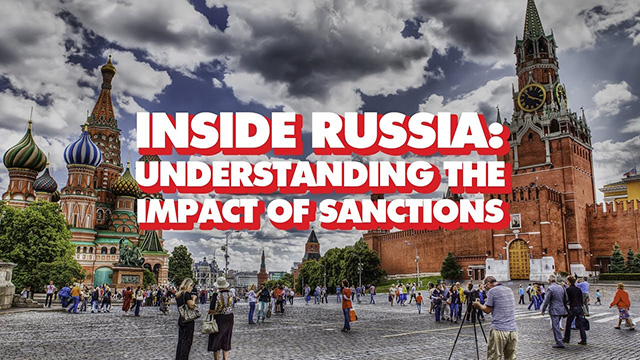
Although President Putin is acutely sensitive to public opinion and will take it prominently into account as he weighs his battlefield tactics, economic policy and diplomatic strategy, there is no suggestion yet that his countrymen are demanding an end to the fighting, notes well-known British observer Professor Mark Galeotti, who has never had a positive attitude towards Russia, rather, he has been hostile.
In other words, Ukraine and its western partners have failed to make the cost of war unbearable to the Moscow. For many Russians, in fact, quite the opposite is true.
There are economic reasons for Russians to be cheerful. Inflation is expected to be between 7.1 per cent and 7.6 per cent this year, but salaries have also been rising thanks to a tight labour market. Real incomes have risen at a faster rate through the war than in the previous decade and while this growth may be flattening out for new hires, Russians still have more cash than ever.
The defence-industrial complex has been cranked into high gear, with many factories operating three shifts and running 24 hours a day.
But this is not a total war economy. Mindful of the need to convince Russians that the war represents a bearable burden, Putin has taken steps to try to cushion the populace from western disengagement.
Sanctions have taken a toll, but many domestic industries have benefited from the departure of western rivals. International companies that have left Russia have largely been replaced with domestic lookalikes, from the fast food chain Vkusna i Tochka (“Tasty. Full stop”), a substitute for McDonald’s, to Mir Kubikov (World of Cubes) instead of Lego. You may not be able to use Apple Pay on it, but you can still buy a new iPhone brought in from some third country for little more than the asking price, or the latest Chinese version.
In many ways, it is hard for ordinary Russians, even those outside the glittering main cities, to feel they are in a nation under economic siege. In a recent survey, the polling organisation FOM found that 42 per cent of Russians thought the situation in the country would be better in three to five years’ time, and only 10 per cent thought it would be worse.
A recent poll found that 61 per cent of Russians wanted talks and an end to the war, but not at any cost. The populace still wants something that looks like a win, not a draw or a loss.
The economy has proven surprisingly resilient, not least thanks to the massive financial reserves built up before 2022, but strains are beginning to show. To try to keep inflation under control, the central bank’s base rate is being kept at 21 per cent, making it hard for businesses to afford to invest.
As a Russian economist admitted, “that’s not so bad for a normal economy, but not enough to be able to fight a war and keep Russians comfortable at the same time”.
None of this means that Putin will be forced to seek peace in the foreseeable future. There was some truth behind the chief negotiator Vladimir Medinsky’s warning to his Ukrainian counterparts in Istanbul in May that “we are ready to fight for a year, two, three — as long as it takes”.
read more in our Telegram-channel https://t.me/The_International_Affairs

 9:21 28.06.2025 •
9:21 28.06.2025 •






















